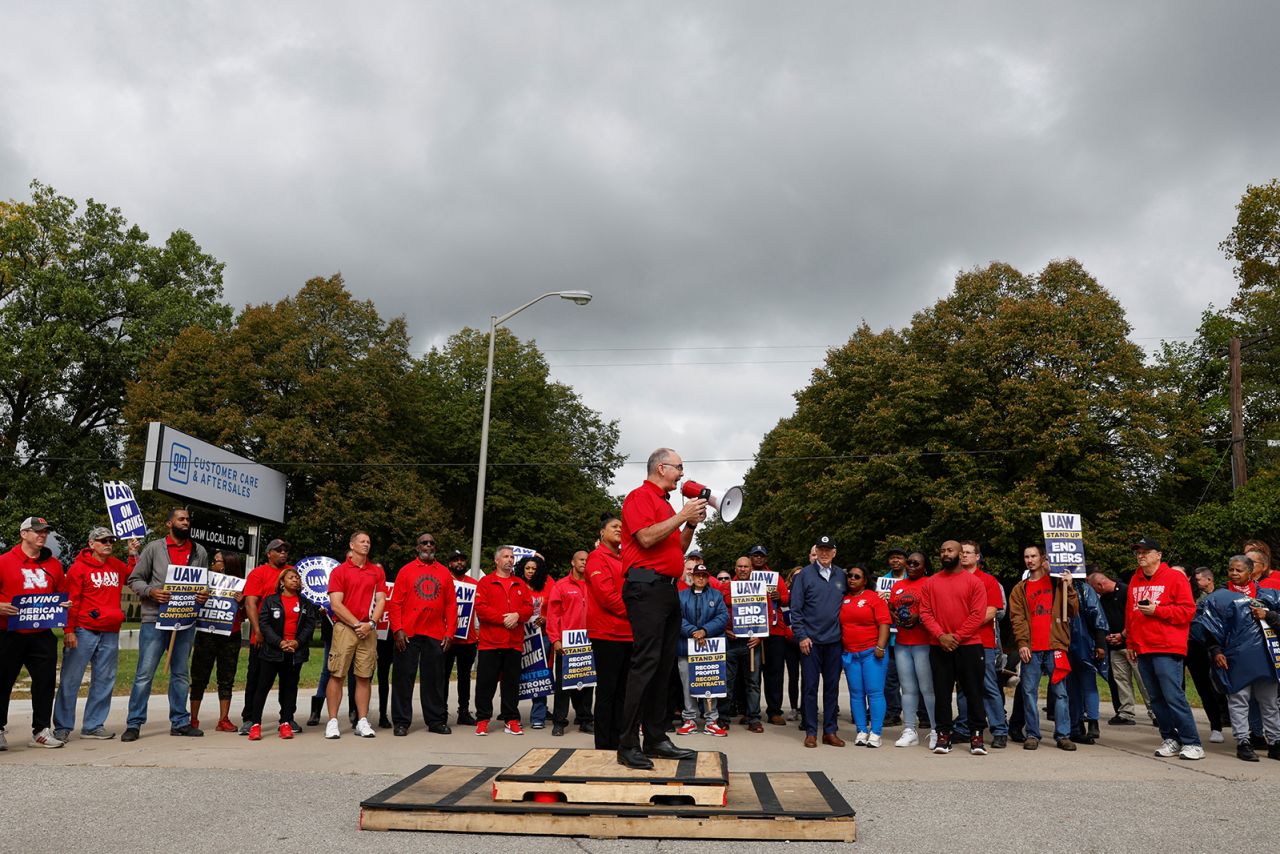United Auto Workers members and supporters picket outside a General Motors facility on Friday, Sept. 22 in Charlotte, N.C. The United Auto Workers expanded its strike against major automakers Friday, walking out of 38 General Motors and Stellantis parts distribution centers in 20 states.
Erik Verduzco/AP
When the UAW announced last Friday that its members were walking out of Stellantis and General Motors’ parts distribution centers, that move represented a potentially serious issue for auto dealerships and their customers. You might have thought shutting down car factories, which the UAW had already done, would be a big problem for dealers because, well, auto dealerships sell cars. Actually, shutting off the supply of parts is a bigger challenge.
For one thing, servicing vehicles, which is what dealers need those parts for, is a much bigger chunk of an auto dealership’s profits than selling cars.
“Of the four profit centers in a dealership – new vehicle sales, used vehicle sales, [finance and insurance], and service and parts – service and parts is the largest,” said Allen Levenson, a senior partner at the consulting firm Motormindz and a former General Motors executive.
Second, if a specific vehicle model is in short supply, dealerships can just charge more for it. Dealerships are independent businesses not owned owned or operated by car companies and, when selling a car, the MSRP – Manufacturers Suggested Retail Price –?really is just a suggestion. Car dealerships, in general, made record profits when overall new vehicle production was disrupted due to covid-related issues in recent .
It doesn’t work that way with service. No one negotiates the cost of a new alternator or a headlight replacement. That work costs what it costs and, if the parts aren’t available, it just has to be delayed, presenting potential issues for customers, too.
Some dealerships CNN spoke with said they’d been getting ready weeks before strikes were announced.
“We did stockpile some parts and vehicles, for example, but now that window for additional prep has passed,” said Scott Kunes, chief operating officer of Kunes Auto Group, said in an email.?
Jeff Ramsey, head of sales and marketing for Ourisman Automotive Group, said his dealership had also been stocking up on parts for about two months in anticipation of a strike.
“We’re in a better shape than most, I think,” he said.
In the meantime, Ramsey expressed confidence that this will all get worked out before it becomes a major crisis.
“I have full trust they’re going to come to a solution before our customer is not able to drive their vehicle,” he said.




























